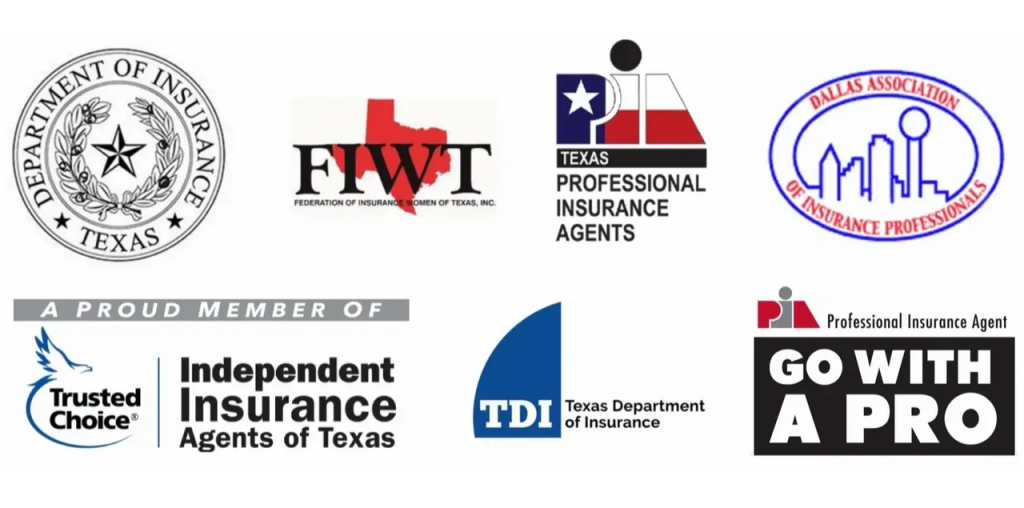The Journal
Thinking about making your Covid home-office permanent?
August 23, 2021
Homeowners or renters policies don’t protect business assets.
Many people started working from home during Covid and many companies discovered a partially decentralized workforce worked out well both for productivity and their bottom-line. Now that offices are starting to reopen, many are offering the choice to work from home several days a week or full-time.
There’s also many small businesses that were home-based pre-Covid (30% of millennial, 20% of Gen-X, and 11% of baby boomer workers/business owners fall into this category), but hadn’t thought about the impacts of a home office until Covid hit and a national dialogue was started about its implications.
During Covid, the biggest discussion about work-from-home shifted to insurance and making sure your business is properly covered. You have to protect your assets, employees if you have them, reputation, and data. So what kind of insurance do you need for your home-based office? Let us explain.
You might think you’re already covered, but you’re not

If you have homeowners or renters insurance, it’s important to know that they don’t cover your business assets or any liability stemming from your professional actions at home.The average cost of a small business lawsuit is $54,000. Do you have that much money just lying around? With the right type of business insurance, all you’ll have to pay is a deductible, and your insurance will cover the cost of litigation and restitution.
Common types of home-based business insurance
Depending on what type of business you’re in, you may or may not need the following types of coverage:
- Property insurance
You’re probably using a computer (I’m betting you’re even on it right now!) and printer for your business, and you might also have a fax machine. Business property insurance protects you in case of loss or damage to any property you use for business. Homeowners insurance alone doesn’t usually provide coverage for business equipment you’ve lost due to fire or flood.
- Liability insurance
While your homeowners insurance helps protect your home and family, it won’t protect you if a client or business associate visits your home office and gets injured. If your client slips on a throw rug and falls, for instance, claims against your homeowners insurance won’t be honored.

- Professional liability
If you’re a freelancer, consultant, or home-based health agent (such as a massage therapist), or work in a legal or fiduciary capacity in any way, you need professional liability insurance. This insurance will cover you against any negligence claims and protect you if you fail to deliver on something you promised.
- Product liability
If you make or supply any sort of product, make sure you discuss product liability coverage with your insurance agent. This type of insurance protects you and your business against damage claims caused to property or people by a product you designed, made, or distributed.
- Automobile coverage
It’s important to note that your personal auto policy won’t cover you when you’re using your vehicle for business purposes. That could include picking up supplies, making deliveries, visiting clients, or even taking them to lunch. You’ll need business auto coverage to be protected in the event of an accident.
- Other types of coverage:
Depending on the business you’re in, and whether you have employees, you might need the following types of coverage:
- Commercial crime insurance: This protects you from theft, fraud, and other crimes against your business perpetrated by employees – the proverbial “hand in the till”.
- Workers’ compensation insurance: This is protects you and your employees if they become injured on the job – it isn’t just for physical laborers or people located in offices, though, for example if an employee gets carpel tunnel from typing while working, or slips and falls while on a business trip to see clients, their personal medical insurance will not cover these injuries. This happened to one of my clients recently – an employee attended conference and had her purse violently stolen in the lobby of the hotel, causing injuries that required surgery. The company’s workers’ comp was required to cover this.
Cyber liability insurance: do you need it?

Cybercrime has increase exponentially with work-from-home over Covid. There are many measures you can and should to take to protect your business from a hack, but if your business falls victim, cybercrime insurance can help.
In 2020 the FBI reports that there were 791,790 complaints of internet crime in the USA alone – an increase of more than 300,000 complaints from 2019 – and reported losses exceeding $4.2 billion. And this cybercrime hits people working from home disproportionately. You can view podcast with cyber security expert Bill Kleyman (expert ranked #4 globally) here, where he discusses the increase and measures businesses can take to protect themselves.
Even if you haven’t been a victim, there’s no doubt you’ve heard about cybercrime. You may associate it with big businesses and retail stores that suffer data breaches, but all businesses should think about cybersecurity.If someone accesses and steals client data from your computer system, or infects your computers with a virus that wipes data, it can be very expensive to fix, which is where cyber liability insurance comes in. You’re not immune if your business is small. The U.S. Small Business Innovation Research program says that 50% of small- to medium-sized businesses are victims of cybercrime annually. And once attacked, 60% of those businesses will fail within six months.That’s a scary prospect. If you have sensitive or proprietary client data, discuss a cyber liability policy with your insurance agent. In the case of a security breach, without a cyber liability policy, you could face hundreds of thousands of dollars in legal fees for:
- The costs of hiring an independent IT professional to investigate the incident to discover:
- Who is responsible
- How they got in
- What they wanted
- What they took
- How widespread the attack is
- The costs to notify your clients of the breach. There are U.S. government regulations covering data breaches that tell you when and how to disclose breaches.
- Any costs to help your clients recover their identity and reputation
- The expenses to restore compromised data
- Operational downtime expenses
Insure your home-based business for peace of mind

Insurance for your business means you’re prepared for burglary, cyber crimes, potential accidents, and pretty much anything else that comes along to disrupt your business. It’s as necessary as hiring the right employees and providing quality services and products to your clients. It’s the best way to be confident you’re protecting yourself and your business. Your best strategy for figuring out what kind of insurance you need is to contact an insurance professional – they’ll have the full details on what coverage you need for the type of business you’re in.

Don’t risk it all by not insuring your home-based business.

Contact Sandstone Insurance Agency for more information and your free quote today – we are an independent insurance agency so we work hard for you and shop your quote around. We have long-standing relationships with carriers to get you the best coverage to fit your needs at the best price available. And if/when the time comes that you need to file a claim, we’re here to help YOU, we have your back.



